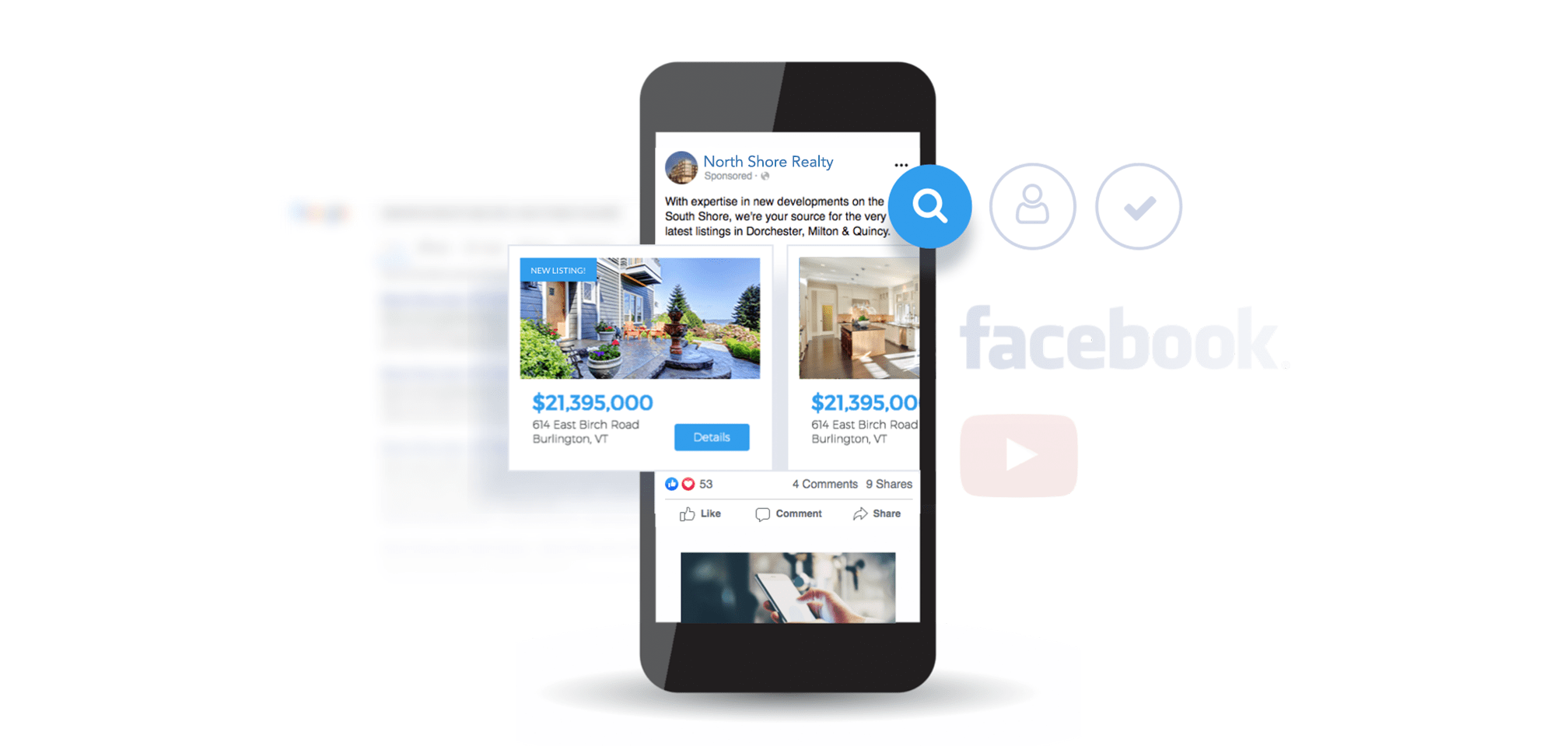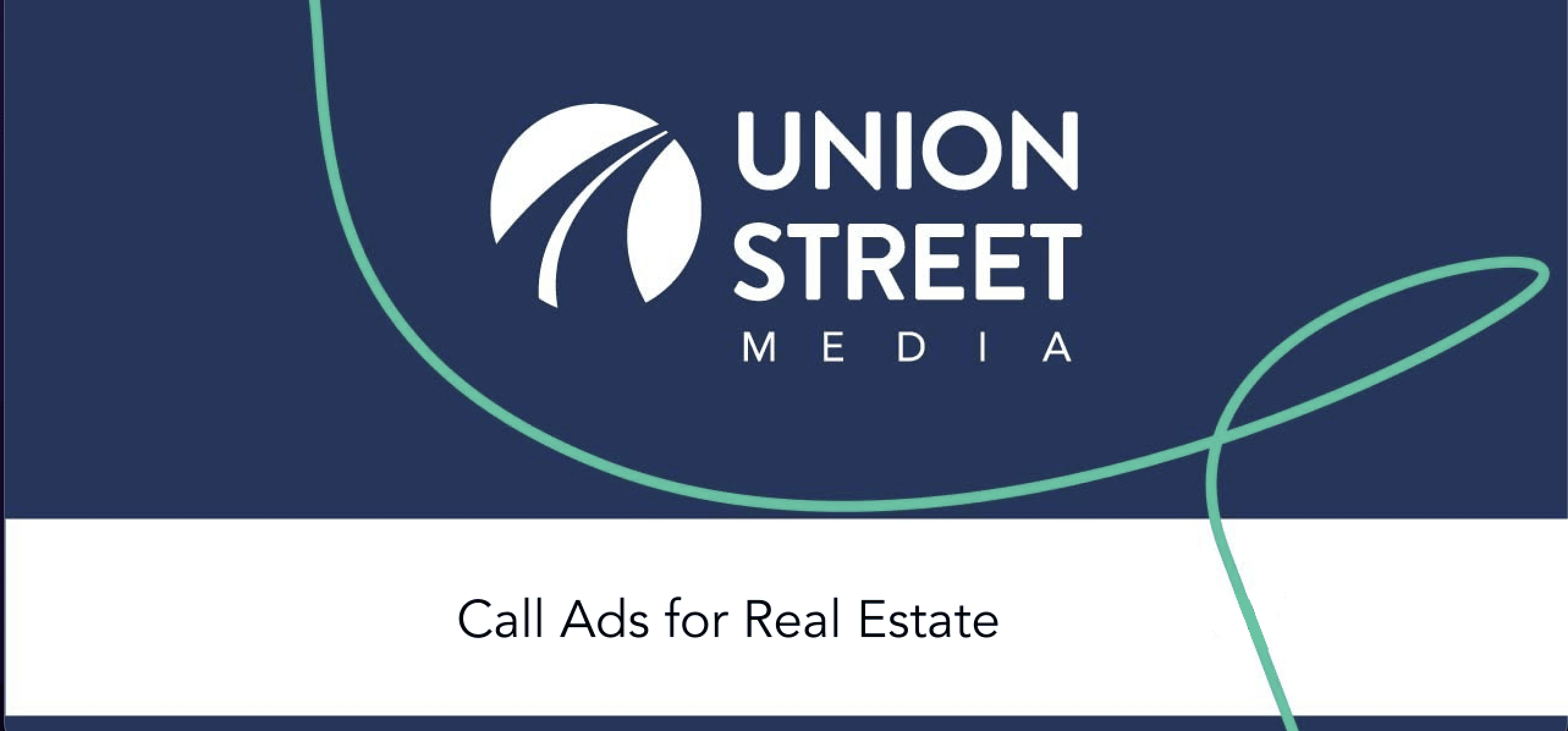Are Facebook Ads for Real Estate Worth It?
Facebook is the most used social media platform in the world with over 2.7 billion active users. It’s also evolved into a major marketing hub through which businesses target and connect with their audiences. Jumping into the world of Facebook ads can be a bit intimidating at first, so below we breakdown what you absolutely need to know before deciding whether to run Facebook ads for real estate. Bear in mind, we could spend hours talking about the pros and cons of Facebook ads for real estate, so these are just a few considerations!
What are Facebook Ads?
Facebook ads are paid promotions that include a variety of formats and placements, including boosted posts. Essentially, anything for which you pay on Facebook counts as a Facebook ad. The primary types of Facebook ads include:
- Image ads (also known as link click ads by some)
- Carousel ads
- Video ads
- Lead ads
- Dynamic product ads (these include dynamic listing remarketing ads)
- Boosted page posts (or boosted posts, for short)
- Instant experience ads
- Collection ads
- Messenger ads and more
You can use Facebook ads to accomplish several goals such as grow your audience and gain followers, encourage customers to contact you (drive leads) or visit your physical location, and drive traffic to your website. Other examples of when to run Facebook ads include promoting events like open houses, showcasing specific services (ex. free home valuations), highlighting specific products (listings), and promoting available jobs at your company. Facebook is also a great place to share stories about your clients, your team, and your own experiences, to build social proof with others (social proof is the idea that if a lot of people like or do something, it must be valid and others will follow them).
When Not to Run Facebook Ads for Real Estate
That being said, there are certain cases when running Facebook ads might not be beneficial for your real estate business. The heart of Facebook ads is spending money to promote or boost content. If you don’t have great content, you shouldn’t run Facebook ads. Like other forms of marketing, you should be prepared to pair paid and organic efforts together to achieve the best results. This means you should regularly be posting content to your Facebook business page and doing things like engaging with people who comment on your posts before starting to run Facebook ads. These things may come naturally to you, which is great! If not, consider whether Facebook ads make sense for you or whether you need to enlist the help of Facebook advertising specialists like Union Street Media, a Facebook partner.
Additionally, it’s important to have enough budget allocated to properly reach your desired audience. Running ads without planning a sufficient budget and quality content ideas leaves more room for unnecessary spending. Plus, with a well thought out content, targeting, and optimization strategy you won’t be wasting precious time constantly pivoting your strategy while your competitors get ahead.
Though it might be hard to believe, some audiences aren’t actually on Facebook. So spending money on ads intended for an audience that isn’t on Facebook, or is on Facebook less than other platforms, will miss the mark on serving content to prospective customers. This is where getting really clear on your goals and aligning your digital marketing strategy for real estate with your specific audience and services is key. Facebook offers advanced targeting and lookalike modeling that can be really effective when the audience you’re looking to target aligns closely with Facebook’s audience, but there are other platforms that could be more effective in reaching your target audience, especially if you’re targeting those just entering the workforce (Gen Z, or those born after 1997) who prefer YouTube over Facebook, as one example.
Facebook Ads Have Never Been More Popular or Under As Much Scrutiny
If you decide that Facebook ads are worth it, it’s important to keep in mind several changes to the platform that directly impact the real estate industry. In 2019, Facebook introduced the Special Ad Categories to combat discrimination under the Fair Housing Act. With this in place, there are more restrictive targeting options in Ads Manager that can’t be used such as zip code, age, gender, multicultural affinity, familial status, religion, or anything related to protected characteristics. Advertisers using the Special Ad Categories also cannot use the traditional Lookalike feature. Instead, you have to create a Special Ad Audience that analyzes online behavior without the factors mentioned above. This can actually be a benefit as models are based on known behavior and not a mix of known and inferred demographic and psychographic data. That said, Facebook has been in the spotlight for much of the past few years due to how it’s handled user data and there are likely more changes to come in the future.
Even with recent changes, Facebook ads for real estate are in higher demand than they have been in the past. The COVID-19 pandemic is a major reason, as Facebook users jumped up 12% in 2020 over 2019 levels, while many had previously projected single-digit growth or flat usage. The surge in popularity means Facebook ads are not as cost effective, a trend that has continued for years, and though they can be very effective and may be necessary to reach your prospective customers, should be carefully considered as part of a strategic marketing mix.
Want more information about running Facebook ads for real estate? Chat with one of our strategists today to discover the most effective digital strategy for your business.










